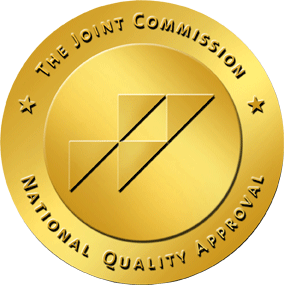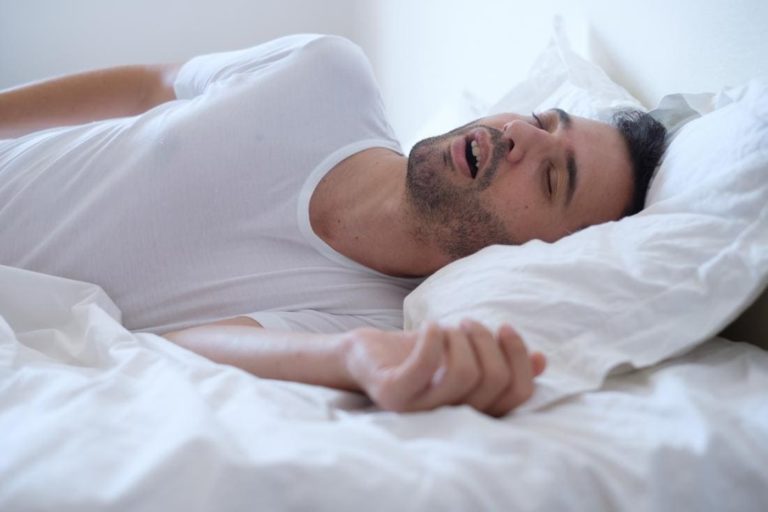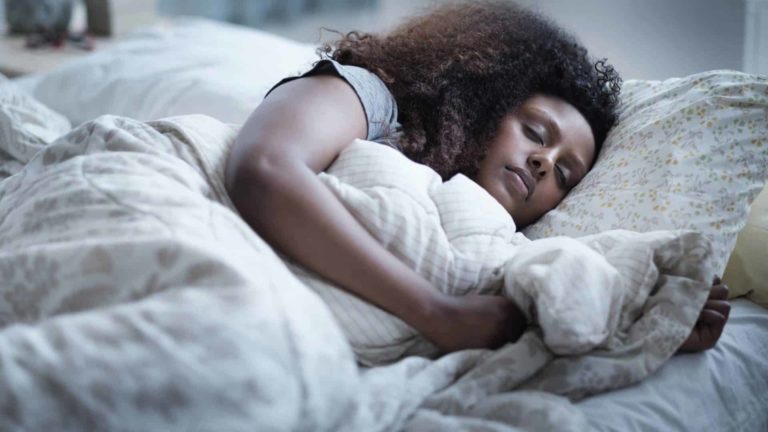There are several sleep apnea myths that you need to be aware of. Here’s a list of the most common sleep apnea myths.
1. Obesity is the Main Cause
A study produced by the Los Angeles Sleep Study Institute indicated that sleep apnea isn’t caused by obesity. If you’re overweight or obese, this does increase your risk of developing of sleep apnea because there’s more fatty tissue present in the throat area. When you have more fat tissue, the back of the throat can collapse and this blocks the airway when the muscles are relaxed during sleep. At the same time, an athlete that has a large muscular neck may also develop sleep apnea. The person who is thin can also develop sleep apnea if he or she has abnormalities in the jaw, adenoids, tonsils, tongue, septum or a narrow airway. While being overweight is a risk factor for sleep apnea, there’s other factors that come into play.
2. Snoring Means You Have Some Form of Sleep Apnea
Snoring and sleep apnea are linked but it’s not a true diagnosis, just a clue that you may have it if you snore as one in three men and around one in five women will suffer from sleep apnea if they snore often. This doesn’t indicate that all people that have some sort of snoring issue have sleep apnea. If you snore you may also suffer from obesity, hypertension, heart failure, and a type 2 diabetes.
3. More Sleep Means Less Snoring
Studies have indicated that if you sleep two much or over sleep this can be detrimental to your health. In Boston Massachusetts, a 2014 Nurses’ Health Study via Brigham and Women’s Hospital indicated that women had a worse performance on memory and thinking skill tests when they received less than five hours of sleep each night or more than nine hours, but had better score when they slept seven to eight hours each night.
The study showed that those that under slept or got too much sleept were two years older mentally when compared to those that got the required seven or eight hours of sleep each night. This was indicated by an interview done with study leader Elizabeth Devore for Harvard Health Publications. This indicated that oversleeping may be just as bad for the development of sleep apnea as getting less sleep. More sleep isn’t the cure for getting poor sleep.
4. Children Don’t Get Sleep Apnea
Pediatrician Dr. Craig Canapari, who works at Yale-New Haven Children’s Hospital in New Haven, Conn, is a specialist in the care of children that have sleep and breathing problems. He indicates that one third of obese children will get OSA or obstructive sleep apnea when you compare this with 2-4% of children that aren’t overweight. Fifty percent of children that are overweight and snore, have OSA, but it’s not know why this is the case. Children have a smaller upper airway and this is more prone to collapse. Belly fat is also associated with OSA as it can push up the lungs and make them smaller. Children do suffer from sleep apnea so this isn’t a myth. Canapari indicates that children who had large tonsils were diagnosed with OSA in the past and then had their adenoids and tonsils removed. Today we no longer see just tonsils as the main cause of OSA as data in 2010 indicates that 16.9% of children and 9.5% of infants that were obese suffered from OSA.
References
- 1. Young T et al. NE J Med. 1993; 328(17):1230–5.
- 2. Logan AG et al. J Hypertens 2001.
- 3. Ogden, C.; Carroll, M.; Curtin, L.; et al. JAMA. 2010; 303(3):242-249.
- 4. Chervin, R. J Clin Sleep Med 2013;9(9):845-852.






